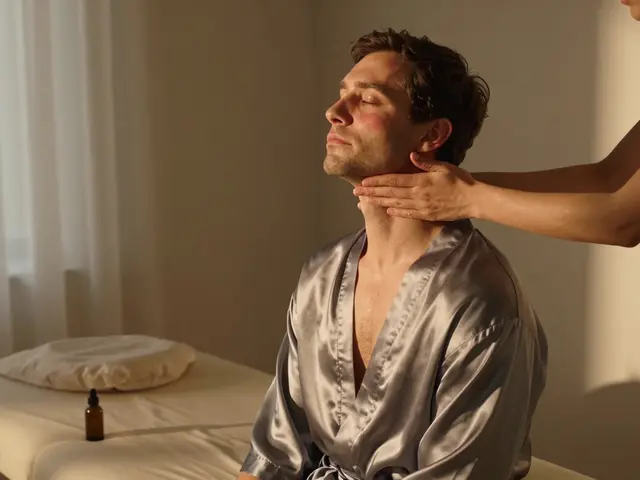Weekends in London can vanish into queues, screens, and soggy plans. You want shared wins, not sibling stand-offs. Here’s a practical, local-first guide to family activities in London that actually build teamwork and cooperation-without needing special gear, huge budgets, or perfect weather. Expect quick wins you can run at home or out across London’s neighbourhoods, plus clear roles for mixed ages, debrief prompts that teach collaboration, and budget/time guides so you don’t burn out by Sunday night.
TL;DR: What works in London (and why it builds teamwork)
- Go mission-based, not just “day out.” Turn museum visits and park trips into team challenges with defined roles and a shared goal.
- Use short cycles: 10 minutes plan, 30-60 minutes doing, 5 minutes debrief. Repeat if energy allows.
- Best quick wins in London: Wonderlab “team missions” at the Science Museum (South Kensington), orienteering on Hampstead Heath or Richmond Park, Young V&A design challenges (Bethnal Green), Juniors parkrun pacing (local parks, Sunday mornings), clueQuest family escape room (King’s Cross), and canal-side scavenger quests along the Regent’s Canal or the South Bank.
- Keep costs predictable: mix free parks/museums with one paid activity per month. If it rains, shift to Transport Museum family workshops (Covent Garden), Barbican Conservatory scavenger trails, or co-op board games at Draughts (Waterloo/Hackney).
- Coach the debrief. Ask: “What did we do well together? When did we talk over each other? What’s one tweak for next time?”
Step-by-step: Build a teamwork habit at home and around London
Here’s a simple framework I use with my kid Cleo when we hop into London for the day. It works in a cramped flat or in a big park.
- Define the shared win. Make it clear and countable: “Find six hidden symbols in the museum,” “Complete three science demos as a team,” “Run a 2k junior parkrun where we encourage one another.”
- Assign rotating roles. Examples: Captain (keeps time/plan), Scout (finds clues/paths), Builder (hands-on tasks), Recorder (photos/notes), Supporter (encouragement/logistics). Swap halfway so everyone tries leadership and supporting.
- Plan for 10 minutes. Agree the route, the order of tasks, and a “Plan B” if it’s busy or raining. In London, crowds can derail you; planning avoids the wobble.
- Run the mission with a light touch. Adults guide, kids decide. If they argue, pause and reflect roles rather than stepping in with the “right” answer. That’s the learning.
- Debrief in 3 questions. 1) What helped us succeed? 2) What tripped us up? 3) What’s one team tweak we’ll try next time? Keep it under five minutes.
Why this works: The Education Endowment Foundation rates collaborative learning as a solid, evidence-backed approach when roles and goals are explicit. The NHS recommends kids get about an hour of physical activity daily; teaming up for active tasks helps meet that. Sport England’s Active Lives data shows fewer than half of children hit that hour-a structured team mission makes activity and cooperation non-negotiable, but still fun.
Rules of thumb for Londoners:
- 60/30/10 rule: 60% doing, 30% simple planning, 10% celebrating/debrief.
- Beat crowds: Arrive early (10:00) or late (after 15:00) for big museums; book timed slots (e.g., Wonderlab) to reduce friction.
- Transport hacks: Under 11s travel free with a fare-paying adult on most TfL services. The Hopper fare lets you change buses within an hour on one fare. Bring snacks; hungry kids don’t collaborate.
- Weather pivot: Have a wet-day alternative within 20 minutes’ travel: e.g., if Hampstead Heath soaks through, hop to the Wellcome Collection or the Postal Museum.

Real London activities that grow teamwork (with roles, scripts, and debriefs)
Each idea below tells you where to go, how to set it up, suggested roles, and a debrief prompt. Mix and match to build your own “cooperation calendar.”
1) Museum Mission: Wonderlab Team Challenges (Science Museum, South Kensington)
Setup: Pick three interactive exhibits (e.g., friction slides, light patterns, giant dominoes). Your goal: complete each with a photo proof and a one-sentence explanation your Recorder writes down.
Roles: Captain (chooses order), Builder (uses hands), Recorder (notes/photos), Supporter (keeps spirits up, handles queuing fairness).
London tip: Book Wonderlab; do it early, then roam quieter galleries. Pair with a quick have-lunch-in-Hyde-Park picnic if the sun’s out.
Debrief: “Which role made the biggest difference and why?”
2) Young Designers Sprint (Young V&A, Bethnal Green)
Setup: Pick a design station. Mission: build something that solves a real problem at home (e.g., charging chaos, toy storage). Present a 30-second “show and tell.”
Roles: Designer (sketches), Builder (puts it together), Presenter (pitches), Coach (keeps time/encouragement).
Teamwork boost: You’ll see who leads by talking vs. doing; rotate halfway to spread skills.
Debrief: “When did we say ‘yes, and…’ instead of ‘no’? How did that change the result?”
3) South Bank to Tate Team Quest
Setup: Start near the London Eye and walk riverside to Tate Modern. Pick six “finds”: a street performer trick, a blue plaque, a bridge photo from below, a book stall gem, a piece of public art, and a team selfie with St Paul’s in frame.
Roles: Scout (spotter), Navigator (maps), Historian (googles facts/reads signs), Diplomat (kind ask for a performer selfie or stall browse).
Budget: Free. Snacks from the Jubilee Gardens kiosk keep morale up.
Debrief: “Where did we disagree on route, and how did we resolve it?”
4) Orienteering in the Green Belt (Hampstead Heath or Richmond Park)
Setup: Download or pick up a basic orienteering map (London Orienteering Klub events run across London). Mission: tag four checkpoints and return within 60 minutes.
Roles: Navigator (compass/map), Timekeeper (calls half-time), Safety lead (keeps the group together), Photographer (proof at checkpoints).
Teamwork tip: Big spaces help kids practice turn-taking and calling decisions out loud.
Debrief: “What did we do before changing course? Did we agree a process?”
5) Family Escape Room (clueQuest, King’s Cross; HintHunt, Euston)
Setup: Choose a family-friendly room (check recommended ages). Mission is obvious: escape!
Roles: Clue runner (moves items), Code breaker (locks), Scribe (notes patterns), Leader (keeps overview and assigns tasks).
London tip: Book off-peak for better prices and calmer rooms. Grab a quick bite at Coal Drops Yard after to celebrate.
Debrief: “When we got stuck, what unblocked us-asking for a clue, swapping roles, or stepping back?”
6) Canal Crew Challenge (Regent’s Canal, King’s Cross to Camden)
Setup: Walk the towpath as a team. Pick five canal-themed tasks: spot three kinds of boats, ID a lock and explain it, count bridges, sketch wildlife, and find a quiet place to sketch/plan.
Roles: Spotter, Explainer, Recorder, Safety (watch for bikes; keep right).
Weather pivot: If it rains, shift to Granary Square fountains planning from under cover, then the London Canal Museum nearby.
Debrief: “Who took initiative when it got busy, and how did we follow their lead?”
7) Go Ape Battersea or Alexandra Palace Climb
Setup: Book a family course. Mission: complete the circuit with everyone finishing at least one element they find tricky.
Roles: Encourager (hype), Planner (reads course map), Safety checker (harness checks with staff), Finisher (sets the pace at tough obstacles).
Teamwork tip: It’s a high-trust environment-agree signals for “need help” vs. “I’ve got this.”
Debrief: “What words helped us most when someone was nervous?”
8) Juniors parkrun: Pace & Cheer (Various London parks, Sundays)
Setup: 2k timed run for ages 4-14. Mission: run together with a “no one left behind” rule or assign a “pacer” who helps a sibling hit a goal time.
Roles: Pacer, Cheer captain, Photographer, Kit wrangler (barcodes, layers).
Teamwork tip: Not about speed-about support. Volunteer as marshals some weeks to model service.
Debrief: “How did support change someone’s effort?”
9) Board Game Café Co-op Night (Draughts Waterloo/Hackney, Bad Moon Cafe Borough)
Setup: Pick cooperative titles (Forbidden Island, Pandemic, Outfoxed for younger kids, MicroMacro: Crime City for older). Mission: beat the scenario with table talk rules (no shouting over, 1-minute turns).
Roles: Rules oracle, Strategist, Tactician, Morale officer.
Budget: Pay table fee; bring water bottles. For home, rotate a “design a new rule” challenge.
Debrief: “When did we decide as a team vs. one person steering?”
10) Cook as a Brigade (Borough Market food challenge or home kitchen)
Setup: Give each person a station (chop, sauté, season, plate). Mission: cook a £10-per-head meal using seasonal finds (e.g., Borough Market) or a Waitrose Cookery School family class.
Roles: Head chef (menu), Sous (prep), Taster (seasoning), Runner (washing up/kit).
Teamwork tip: Use “yes-chef” responses for clarity and calm.
Debrief: “How did we share the space without bumping into each other?”
11) Transport Time Trial (London Transport Museum + Tube relay)
Setup: Learn at the museum, then run a three-stop Tube relay: one person navigates, one watches platform screens, one tracks time, one keeps the group together.
Roles: Navigator, Watcher, Timekeeper, Shepherd.
Accessibility: Step-free planning makes this a real-world teamwork puzzle.
Debrief: “What made transfers smooth-clear instructions, eye contact, or hand signals?”
12) Community Team-Up (Thames21 clean-ups, local Friends of Parks)
Setup: Sign up for a family-friendly litter pick or planting day. Mission: collect a set number of bags or plant a bed.
Roles: Picker, Sorter, Counter, Safety (gloves/awareness).
Teamwork tip: Serving together builds empathy fast-kids feel the impact.
Debrief: “Who did we help today, and how do we know?”
Checklists, budgets, FAQs, and next steps
Quick kit checklist (London-proof)
- Layers and lightweight waterproofs; microfibre towel if fountains/Go Ape.
- Snacks (non-messy), refillable bottles (many refill points around the city).
- Charged phone with Citymapper or TfL app; portable battery.
- Small notepad/pencil for Recorder; a coin purse for loos/snacks.
- Clear roles written on a sticky note; swap halfway.
Safety and accessibility
- Agree a meeting point at every venue (museums and big parks).
- Use step-free routes where needed; check lifts in advance on the TfL app.
- At busy sites (South Bank, Camden), walk single file on narrow paths; kids inside, adults outside by the canal/road.
- For neurodivergent kids: choose quieter slots, bring noise-reduction headphones, and preview room photos (escape rooms provide them).
Budget/time guide for popular activities
| Activity | Typical Cost (pp) | Time Needed | Recommended Ages | Where in London |
|---|---|---|---|---|
| Wonderlab Team Mission | £8-£15 | 1.5-2 hrs | 6+ | South Kensington |
| Young V&A Design Sprint | Free | 1-2 hrs | 4-12 | Bethnal Green |
| South Bank-Tate Team Quest | Free | 1.5 hrs | All ages | Waterloo to Bankside |
| Hampstead Heath Orienteering | Free-£5 | 1-2 hrs | 7+ | North London |
| clueQuest Family Escape | £25-£35 | 1 hr (+15 prep) | 8+ | King’s Cross |
| Go Ape Family Course | £20-£35 | 1-2 hrs | 6+ | Battersea/Ally Pally |
| Juniors parkrun | Free | 45-60 mins | 4-14 | Various parks |
| Board Game Café (co-op) | £5-£10 | 1.5-2 hrs | 6+ | Waterloo/Hackney/Borough |
| Transport Museum + Tube Relay | £10-£20 | 2-3 hrs | 5+ | Covent Garden + network |
Execution checklist (so it actually happens)
- Pick the mission by Thursday night; book if needed.
- Assign roles at breakfast; put them on a sticky note.
- Set a simple, countable “win.”
- Plan your wet-weather pivot and nearest loos/food stops.
- Pack snacks, layers, and a tiny reward (sticker, hot chocolate) for completion.
- Do the three-question debrief before Wi‑Fi goes back on.
Common pitfalls to avoid
- Letting one kid control the plan-rotate roles mid-activity.
- Making it too long-aim 60-90 minutes per mission.
- Skipping the debrief-that’s where cooperation sticks.
- Over-scheduling paid stuff-one paid activity per month is plenty; pepper in free museum/park missions.
Mini-FAQ
What if it’s pouring with rain?
Hit the Transport Museum (interactive, compact), the Postal Museum (Mail Rail ride is a team thrill), or the Barbican Conservatory for a calm scavenger. For pure indoor teamwork, book an early escape room slot or a co-op board game session at Draughts.
We’ve got big age gaps. Any tricks?
Give the older one a coaching role (pacer, lead clue-solver, photographer). For the younger, choose tactile jobs (stamping, spotting, carrying the map). Swap halfway so both feel stretched and seen.
How do we keep costs down?
Alternate free and paid weekends; pack food; use off-peak travel. Many museums are free-use their hands-on galleries and set your own missions. Book in advance for better rates on paid activities.
My kids argue nonstop. What then?
Use a “talking token”-only the person holding it can give ideas, then pass it on. Or try “one idea per person” before any decision. Debrief what respectful talk sounded like and what didn’t.
Any accessible options?
Plenty. Choose step-free museums first (Science Museum, Tate Modern), preview spaces online, and keep routes compact. Team roles can include Navigator (step-free), Diplomat (asks staff), and Recorder (photos)-everyone contributes.
We’re visiting London with just one day. What’s the best teamwork route?
Morning Wonderlab mission, lunch picnic in Hyde Park, South Bank quest to Tate, then a co-op board game hour near Waterloo. You’ll cover science, outdoors, art, and communication in one tidy loop.
Next steps and troubleshooting
- Make it a monthly rhythm: Week 1 museum mission, Week 2 park orienteering, Week 3 home cooking brigade, Week 4 community clean-up or board game co-op. That mix builds cognitive, physical, and social teamwork.
- Use a simple scoreboard: Track “team wins” (not points by person). When you hit 10, celebrate with a free choice day.
- When one child dominates: Assign them the Supporter role for one round and let a sibling lead. Praise good supporting out loud.
- When motivation dips: Shrink the mission. Try “three clues only” or “15-minute kitchen blitz.” Momentum beats scale.
- When crowds spike: Bail fast and switch to your indoor pivot nearby. London rewards flexible families.
Age and energy fit
- Under 6s: Keep roles simple (Spotter, Helper). Use short loops, lots of tactile tasks. Young V&A and South Bank mini-quests shine.
- 7-10: Start map-reading, light timekeeping, simple escape rooms, Forbidden Island at cafés.
- 11-14: Full orienteering, longer Thames Quests, tougher escape rooms, cooking mains and desserts.
- Teens: Let them plan the whole day and budget; adults support, not steer.
London logistics cheats
- Use Citymapper’s “quiet routes” to find calmer paths.
- Off-peak Tube on weekends is usually easier after 10:30.
- Bring a foldable tote for layers and museum shop finds; hands-free helps cooperation.
- Choose neighborhoods with multiple options within a 15-minute walk (South Kensington triangle: Science Museum/NHM/V&A; South Bank: Jubilee Gardens, book stalls, Tate; King’s Cross: Granary Square, Canopy Market, canal path).
Why this approach lasts
You’re not chasing a perfect itinerary. You’re building repeatable habits: define a shared win, rotate roles, debrief lightly, and celebrate effort over outcome. That’s cooperation you can actually feel at the bus stop, at the dinner table, and on the school run.




